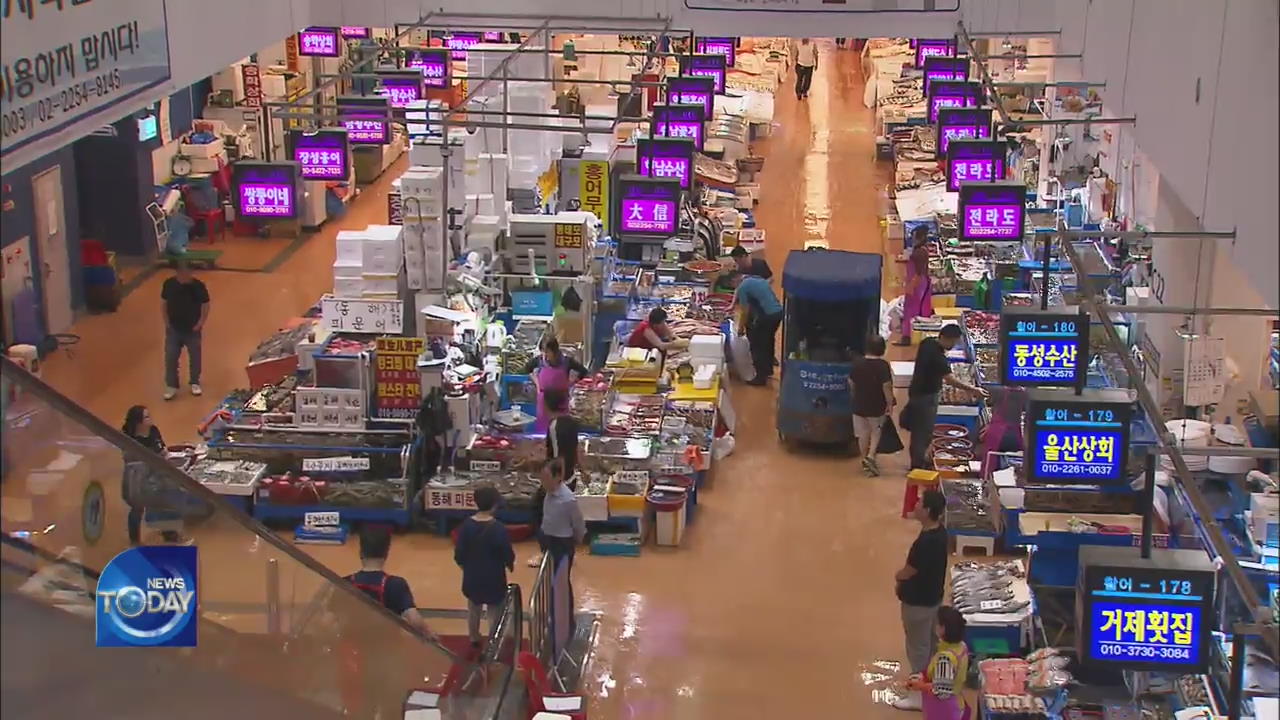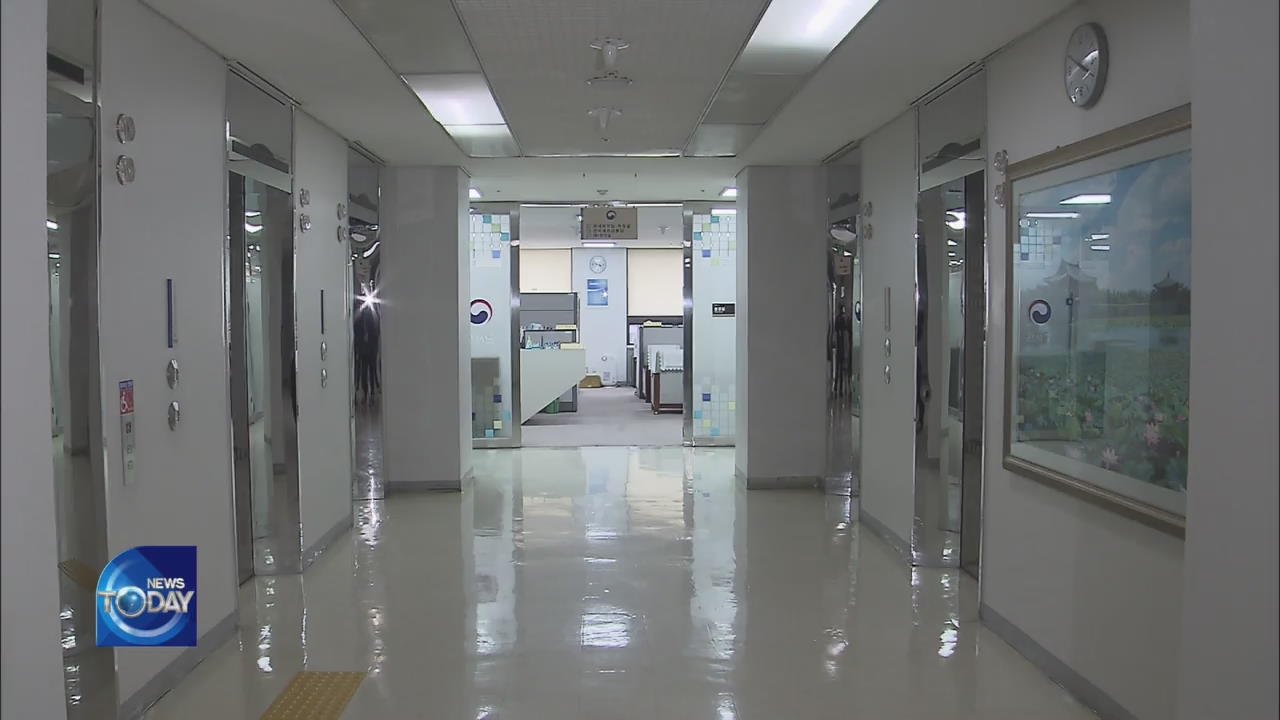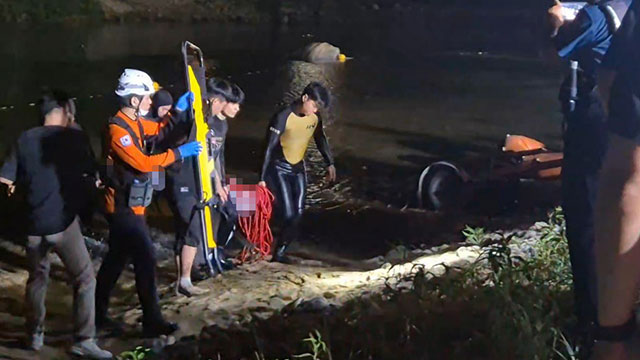CRACKDOWN ON IMPORTED SEAFOOD
입력 2019.09.04 (15:00)
수정 2019.09.04 (16:45)
읽어주기 기능은 크롬기반의
브라우저에서만 사용하실 수 있습니다.
[Anchor Lead]
The government will launch a major crackdown on place of origin labeling practices involving imported seafood products. Most seafood imported from Japan will be subject to inspections. Rewards for reporting labeling violations to authorities will also increase sharply.
[Pkg]
[Soundbite] "We are inspecting place or origin labeling. Let's take a look."
In an effort to defuse public apprehension over the safety of Japanese marine products, the government will conduct a major clampdown through next month to survey whether imported seafood has the correct country of origin labeling. Onsite inspections will be stepped up covering large retailers, markets, processings firms and some 3,000 restaurants nationwide. Eight specific items are subject to the clampdown, including pollack, red sea-bream, yellow tail, octopus, mackerel pike, eel, sea squirt and one type of scallop. The special inspections are viewed as a counter response to Japan's export restrictions against Korea. In the case of pollack, a full fishing ban has been introduced in Korea from this year, which means nearly 97% of all pollack sold domestically comes from Japan. It's a similar situation with other fish as well. The entirety of yellow tail imports, 99% of all imported sea squirts and 79% of imported scallop are from Japan. Alongside the crackdown, penalties will also increase. Vendors selling seafood without indicating the place or origin will face fines of up to 10 million won. Lying about the origin will result in a maximum 150 million won fine or prison sentence of up to ten years. Rewards paid to citizens who report labeling violations to authorities have also gone up from the current 2 million won limit to as much as ten million won. The government has also doubled the frequency in conducting safety tests on 17 Japanese seafood products. The 17 items on the list had reported radiation detection in previous tests.
The government will launch a major crackdown on place of origin labeling practices involving imported seafood products. Most seafood imported from Japan will be subject to inspections. Rewards for reporting labeling violations to authorities will also increase sharply.
[Pkg]
[Soundbite] "We are inspecting place or origin labeling. Let's take a look."
In an effort to defuse public apprehension over the safety of Japanese marine products, the government will conduct a major clampdown through next month to survey whether imported seafood has the correct country of origin labeling. Onsite inspections will be stepped up covering large retailers, markets, processings firms and some 3,000 restaurants nationwide. Eight specific items are subject to the clampdown, including pollack, red sea-bream, yellow tail, octopus, mackerel pike, eel, sea squirt and one type of scallop. The special inspections are viewed as a counter response to Japan's export restrictions against Korea. In the case of pollack, a full fishing ban has been introduced in Korea from this year, which means nearly 97% of all pollack sold domestically comes from Japan. It's a similar situation with other fish as well. The entirety of yellow tail imports, 99% of all imported sea squirts and 79% of imported scallop are from Japan. Alongside the crackdown, penalties will also increase. Vendors selling seafood without indicating the place or origin will face fines of up to 10 million won. Lying about the origin will result in a maximum 150 million won fine or prison sentence of up to ten years. Rewards paid to citizens who report labeling violations to authorities have also gone up from the current 2 million won limit to as much as ten million won. The government has also doubled the frequency in conducting safety tests on 17 Japanese seafood products. The 17 items on the list had reported radiation detection in previous tests.
■ 제보하기
▷ 카카오톡 : 'KBS제보' 검색, 채널 추가
▷ 전화 : 02-781-1234, 4444
▷ 이메일 : kbs1234@kbs.co.kr
▷ 유튜브, 네이버, 카카오에서도 KBS뉴스를 구독해주세요!
- CRACKDOWN ON IMPORTED SEAFOOD
-
- 입력 2019-09-04 15:03:08
- 수정2019-09-04 16:45:20

[Anchor Lead]
The government will launch a major crackdown on place of origin labeling practices involving imported seafood products. Most seafood imported from Japan will be subject to inspections. Rewards for reporting labeling violations to authorities will also increase sharply.
[Pkg]
[Soundbite] "We are inspecting place or origin labeling. Let's take a look."
In an effort to defuse public apprehension over the safety of Japanese marine products, the government will conduct a major clampdown through next month to survey whether imported seafood has the correct country of origin labeling. Onsite inspections will be stepped up covering large retailers, markets, processings firms and some 3,000 restaurants nationwide. Eight specific items are subject to the clampdown, including pollack, red sea-bream, yellow tail, octopus, mackerel pike, eel, sea squirt and one type of scallop. The special inspections are viewed as a counter response to Japan's export restrictions against Korea. In the case of pollack, a full fishing ban has been introduced in Korea from this year, which means nearly 97% of all pollack sold domestically comes from Japan. It's a similar situation with other fish as well. The entirety of yellow tail imports, 99% of all imported sea squirts and 79% of imported scallop are from Japan. Alongside the crackdown, penalties will also increase. Vendors selling seafood without indicating the place or origin will face fines of up to 10 million won. Lying about the origin will result in a maximum 150 million won fine or prison sentence of up to ten years. Rewards paid to citizens who report labeling violations to authorities have also gone up from the current 2 million won limit to as much as ten million won. The government has also doubled the frequency in conducting safety tests on 17 Japanese seafood products. The 17 items on the list had reported radiation detection in previous tests.
The government will launch a major crackdown on place of origin labeling practices involving imported seafood products. Most seafood imported from Japan will be subject to inspections. Rewards for reporting labeling violations to authorities will also increase sharply.
[Pkg]
[Soundbite] "We are inspecting place or origin labeling. Let's take a look."
In an effort to defuse public apprehension over the safety of Japanese marine products, the government will conduct a major clampdown through next month to survey whether imported seafood has the correct country of origin labeling. Onsite inspections will be stepped up covering large retailers, markets, processings firms and some 3,000 restaurants nationwide. Eight specific items are subject to the clampdown, including pollack, red sea-bream, yellow tail, octopus, mackerel pike, eel, sea squirt and one type of scallop. The special inspections are viewed as a counter response to Japan's export restrictions against Korea. In the case of pollack, a full fishing ban has been introduced in Korea from this year, which means nearly 97% of all pollack sold domestically comes from Japan. It's a similar situation with other fish as well. The entirety of yellow tail imports, 99% of all imported sea squirts and 79% of imported scallop are from Japan. Alongside the crackdown, penalties will also increase. Vendors selling seafood without indicating the place or origin will face fines of up to 10 million won. Lying about the origin will result in a maximum 150 million won fine or prison sentence of up to ten years. Rewards paid to citizens who report labeling violations to authorities have also gone up from the current 2 million won limit to as much as ten million won. The government has also doubled the frequency in conducting safety tests on 17 Japanese seafood products. The 17 items on the list had reported radiation detection in previous tests.
이 기사가 좋으셨다면
-
좋아요
0
-
응원해요
0
-
후속 원해요
0














![[단독] ‘공천개입 핵심 물증’ 윤상현 휴대전화 미제출…야간 추가 압수수색도 실패](/data/layer/904/2025/07/20250709_dRidEM.png)


이 기사에 대한 의견을 남겨주세요.